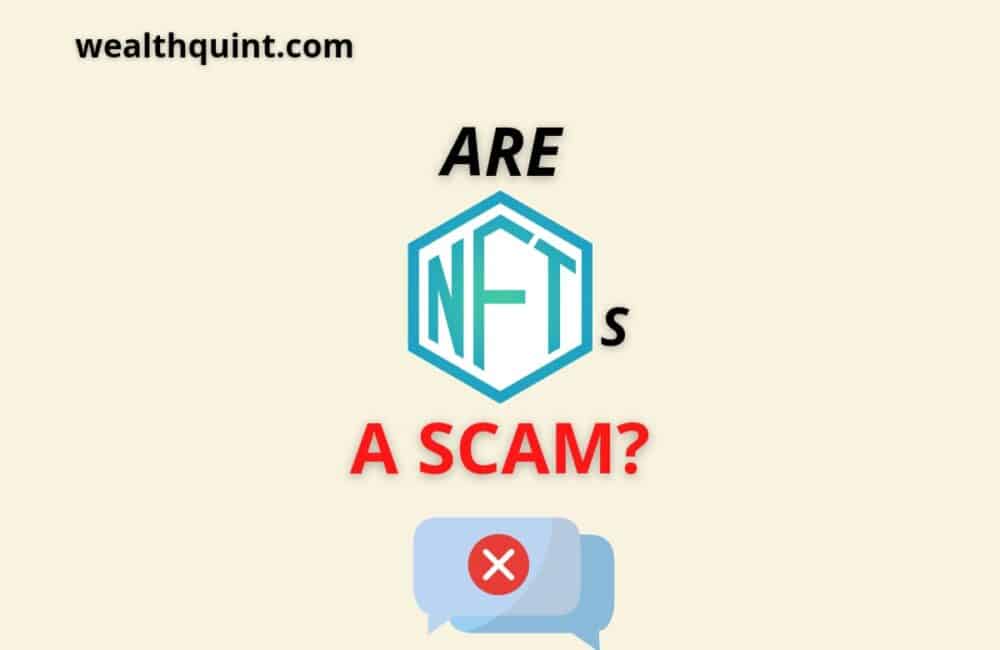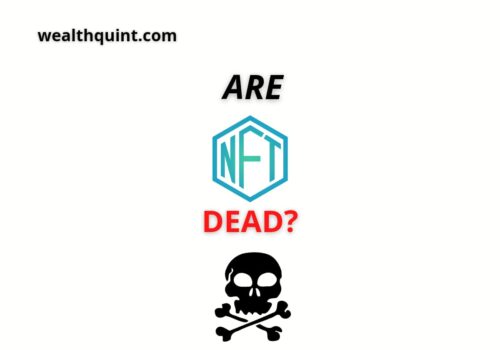Globally, non-fungible tokens have gained popularity outside of the virtual currency industry as well. The popularity of NFT art has led many people to search for information about creating their own and ultimately become part of the craze.
A non-fungible token is a blockchain-based digital asset that represents a number of unique and rare objects, such as digital art, virtual real estate, and collectible sports cards.
Are NFT’s A Scam?
No, NFT is not a scam if purchased from a trustable website, but if it is purchased from suspect sites, then you might be a victim of an NFT scam. NFTs, or non-fungible tokens, have become more and more popular over the past few years and are now selling for millions of dollars.
A scammer can use an NFT to sell art that isn’t theirs, or it can tokenize actual art created by talented people. Given the amount of dumb money thrown into such a new corner of the market, it shouldn’t come as a surprise that scams exist there.
It’s only natural, however, for scammers to try to take advantage of unsuspecting buyers when an industry grows this large.
NFT Scams
Listed below are some of the most common NFT scams:
1. Replica Or Fake NFT Stores
The number of domains registered with names such as “Opensea”, “Rareible”, and “Audius” has increased 300% since March 2021. There is absolutely no difference in the look of these stores from the original NFT marketplaces (i.e. OpenSea, Rarible, Audius). The sites use the same design and even include the same NFTs.
Other than replicas of real NFT stores, fake NFT stores even sell NFTs that do not exist. When art enthusiasts purchase these fakes, they find they are a terrible mistake.
Be aware of how you are directed to the website to avoid getting scammed by fake stores. It is important to report illegitimate URLs shared by others to prevent others from falling victim to them.
2. Artist Impersonation
Artist impersonation is another major issue plaguing the NFT world. One such case involved an anonymous art collector named Pranksy, who spent US$3 million (in Bitcoin) on an NFT he believed to be the original work of Banksy.
It was a happy ending for Pranksy that the original seller refunded their Ethereum after media coverage of the scam appeared.
Several new domain name registrations, including banksynf.com and banksynfts.com, indicate that fraud attempts to impersonate artists are rising.
Make sure you purchase only authentic products. It is always a good idea to verify the seller you are buying from and the NFT itself to ensure your purchases are safe.
3. Fake Bidding
Scammers have been using OpenSea’s marketplace in recent years to place fake bids. A scammer approaches sellers of NFTs on the various marketplace, attempting to place bids on the NFTs with USDC.
But they cheat sellers by using the WETH logo as the profile picture so that they may believe they’re bidding in WETH (wrapped Ethereum).
The seller can lose their money if they rush to make a sale and fall for the WETH logo scam. By taking your time when reviewing bids and reporting potentially unscrupulous buyers, you can avoid falling victim to this scam.
4. Typos And Malware
Searching on the internet can be difficult. After all, we accidentally type the wrong word because we are so in a hurry. Scammers and hackers take advantage of these mistakes to attack your device. Typosquatting is one such attack.
Among the ways you can be duped by typosquatting scams is by mistyping. Clicking on URLs with one letter out of place (such as rarbile.com instead of rarible.com) is another way to make you vulnerable.
In some cases, the purpose of these fake websites is to direct you to download malware; in others, the purpose is to steal your personal information by offering you gift cards and money that aren’t real. Make sure you are visiting the official website by carefully looking at URLs.
5. Insider Trading
NFT traders and collectors are also concerned about insider trading. NFTs are classified as insider trading when bought before they are offered to the general public. OpenSea’s Head of Product Nate Chastain was implicated in an insider trading scam in September of this year.
It is possible to avoid other scams on this list with caution, but not insider trading. No law prohibits such activity. Insider trading needs to be curtailed on NFT markets with stricter rules.
With OpenSea admitting to the scam, employees are no longer permitted to buy or sell NFTs that the company is promoting.
NFTs are becoming increasingly popular, which means buyers and sellers need to research and be wary of scams. The golden rule is that if something seems too good to be true, it probably is.
Final Thoughts
There are a lot of scams out there today, and it’s a little scary to think about all the possible ones. Innovators are finding new ways to trick people every two weeks as cybercriminals get more inventive.
But if you stay vigilant and know how to recognize scams out there, you will keep yourself safe when you dive into the exciting world of NFTs.




